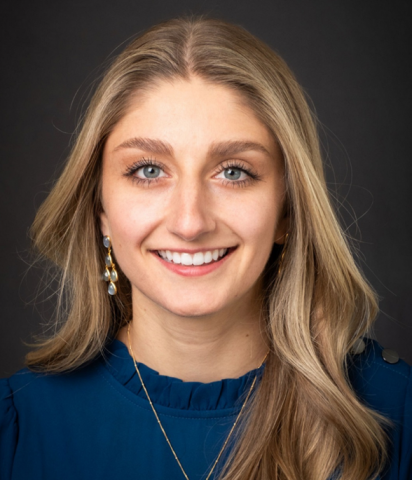Sydney Shannon – Virginia Lukasik Memorial Scholar
1st Year Scholar, PhD candidate
Biomedical Engineering
John Hopkins University
Research:
Gene therapies are transforming treatment approaches for many human diseases; but current approaches can be very costly and not available for all patients. This research focuses on engineering novel biomaterials that incorporate natural immune signals to activate the body’s immune cells to treat cancer. My platform has the potential to mediate anti-tumor effects as a more accessible and durable “off-the-shelf” therapeutic, and therefore available to more patients.
How Will Your Research Benefit Society?
Even with treatment advances, the annual global burden of new cancer cases and deaths is still expected to rise. There is a critical need for novel therapies that specifically engineer the immune system to prevent cancer progression in a more globally accessible and longer-lasting manner. My thesis dissertation therefore focuses on engineering biomaterials for activation of cytotoxic T-cells in treating cancer without the need to harvest a patient’s cells for current immunotherapy treatments. My passion lies in recreating artificial antigen-presentation (aAPCs) using injectable biodegradable platforms. Synthetic aAPC platforms made with polymers provide distinct advantages over current cellular systems in terms of manufacturing, long-term storage, overall costs, and the ability to optimize T-cell activation and biocompatibility. My dissertation work will address critical challenges in immunoengineering and cancer immunotherapy, leading to a safe, effective, and flexible platform for stimulation of cytotoxic anti-tumor T-cells in vivo, which has direct impact on human health and equitable access to cancer treatments
How will an ARCS Award Benefit Your Research?
The Scholar Award will help cover research-associated costs and allow me to focus on more experimental productivity and career development moving into my final years. My data output depends on a growing necessity for advanced programming packages, including Prism and FlowJo; these software packages require licenses to statistically analyze and sort the overwhelmingly large data sets that I collect.
Further, I will be able to attend conferences outside the local area that are important to me as a scientific researcher and minority in STEM. The ARCS award will fund expensive travel and registration-related costs that are not covered by my laboratories or department and have hindered my ability to attend these larger-scale international conferences.
Career objectives:
Upon enrolling in my first undergraduate engineering courses, I was alarmed by the limited female representation and the realities of the “glass ceiling.” I therefore want to advise and empower future generations of scientists with diverse backgrounds, breaking down barriers that nearly discouraged me from pursuing my PhD and passion for biomedical research. Secondly, I want to lead a laboratory and pioneer the development of biomaterials for cancer immunotherapies, transforming discoveries into accessible realities from the bench to the bedside. I am excited by current medical therapies and treatments, but even more so by the fact that they would not exist without pioneers in research.

